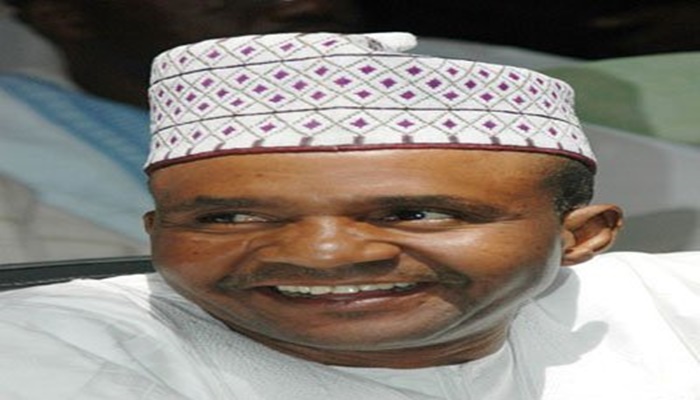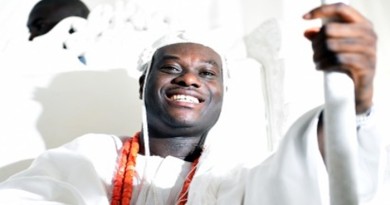Suntai: Have we learnt anything?
By Emmanuel Bello
In a way, late Governor Danbaba Danfulani Suntai was trying to teach Taraba people and Nigerians lessons in leadership, conduct and power relations. Did we learn? Did we even know the lessons he taught? For it is never enough to mourn such a soul and forget what he represented in his mortality. And I’m pretty sure that if Suntai were to plan his own funeral, he may not even be bothered about the razmatazz. But he sure would be concerned to know if anyone learnt anything from the exemplary leadership he gave. So did we learn? Or were we busy castigating the dear man to hear him out? Did we read between the lines or looked beyond his frailties to sense he was a good, kind hearted individual?
Some people said Suntai was a difficult man who loves to intimidate those around him. And yes, he could be scary at times, especially when he threw up tantrums. I recalled our first meeting with him when we were sworn into his cabinet. It was an intimidating setting in a new environment. Some of us were new to the hallowed ambience of the EXCO chamber with our new shining pictures on the wall. The governor himself was seated, almost imperially on the seat. His usual calm demeanour was both attractive and awe instilling. The room was quiet with the air-conditioning machines humming. The governor had just finished his speech and wanted us to comment. No one was willing to be the first speaker. Then, out of nowhere, Mr. Wanapia raised his hand. Illiya Wanapia was the tell-it-as- i-is commissioner of finance at the time.
We all leaned forward to hear what he would say. Tapping the microphone for assurance as we love to do in Nigeria, he said, “Your Excellency. I’m really grateful for this opportunity. My only problem with you now is this your vibration. When you are angry, you vibrate a lot and that can be really frightening. So please reduce your vibrations.”
Deafening silence followed. It was Suntai who broke it by bursting into one of those hearty laughter of his. We all chorused along. He was stern man no doubt. But that’s may be because he wanted to teach us a lesson in firmness. Was he too rigid? Was he unyielding and unbendable? Did his stubbornness become his Achilles heels? These are stuff for debates now that he’s gone. But he was firm. A leader should be firm, focused and determined. Suntai wanted to teach that.
Late Suntai was taciturn. He doesn’t talk much. He was all Mr. Action and fewer words. His meetings were always quick as a result of this. In selecting a team, all he does is gather stakeholders, ask for names, determine their suitability and, pronto, a decision has been made. No dilly dallying. No beating about the bush.
For Suntai, records are all that mattered. You were often compensated for the job you did. He was the ultimate reward system leader. You only reaped where you sowed. He was teaching us the value and virtue of hard work. And the sweet reward for good service. That way, Suntai was dealing a blow on lethargy and the entitlement mentality. With him, you were not entitled to anything you didn’t deserve. Did we get that lesson?
He taught us to shun the world. Now, no human being detested praises more. In a state full of petty power brokers who measured their stride by the praise they get, the ululations of men, Suntai was to shock people. He simply said “No” to praise singing. This was new and almost revolutionary.
Mundane as we were, not many people understood this one. I had to ask him one time why he does not want to be given awards. He said, “when I’m out of power, let me see if these awards would still come.” He hates “eye or lips service” or any form of hypocrisy. He was teaching us lessons in humility, candour and forthrightness. Did we pick that up? Are those in leadership today at whatever level prepared to shun materialism, empty idol worship from their constituents and embrace truth no matter how brazen?
An enduring lesson he taught us was that of fear of God. And love for mankind. This could be a latter day development for the pharmacist turned politician but Suntai truly feared his maker and had tremendous faith in Him. This made him fearless. He likes to say that when God endorses you, it doesn’t matter if the entire human race rejects you, you would still win. At the campaigns, he told packed audiences that if they rejected him but God wants him, there is nothing they could do about it. And vice versa.
He said he wanted to be elected by God first. He shunned the endorsement and acceptance of men and actually tried to discourage it. For a politician who should be going gaga over human acceptance and testimonies, Suntai was iconoclastic. He said divine approval was all that counted. Was he over stepping his bounds? Was he making nonsense of the Chimney scripture that said “the voice of the people is the voice of God”? He turned the saying on its head.
No write up can adequately exhaust the lessons late Suntai taught us as a people. If I have my way, an annual memorial lecture must be instituted to continue the conversation the people’s governor started with the Taraba people. Indeed, a man passed this way and left his giant marks behind. This is my final tribute to my boss, my leader and my lesson teacher.
***Bello, a former Taraba State Commissioner of Information under Suntai, is now SSA Public Affairs to Governor Darius Ishaku




